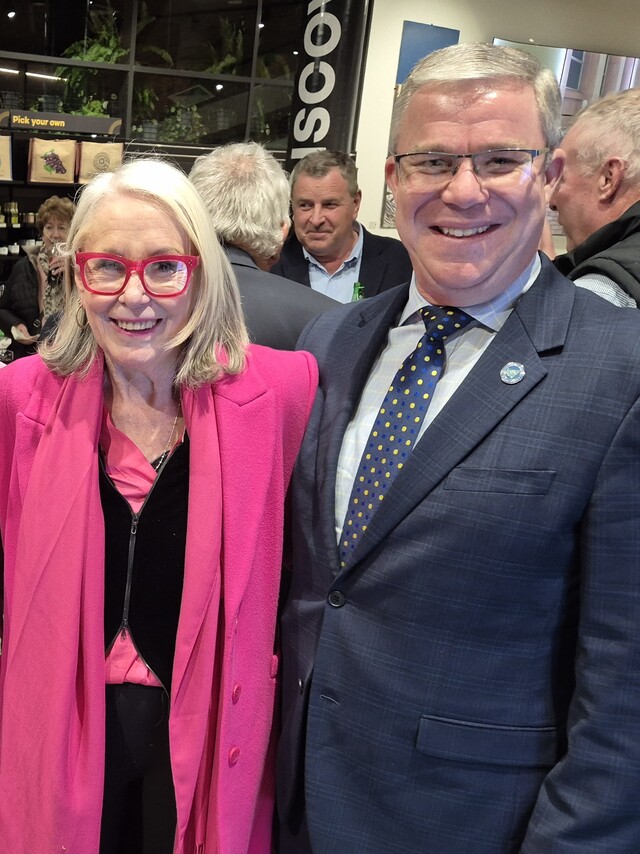The Northern Territory’s current 62 Municipal and Community Government Councils will be reduced to 16 on 1 July. Eight of these are new ‘super’ Shires, each serving a number of remote townships and communities and, for the first time, including large areas of land not previously administered by Local Government. Chief Executive Officers have been appointed to the new Shires and FOCUS recently spoke to two of these CEOs.
Rowan Foley – CEO Central Desert Shire
Rowan Foley is one of two Indigenous people appointed as CEO on the new Shires. Rowan has had extensive management experience with National Parks and Land Councils. His previously position was as Park Manager at Uluru-Kata Tjuta National Park, living in the Mutitjula community located beside Australia’s most famous monolith. He has worked for both the Kimberley Land Council and North Queensland Land Council, broadening his management and negotiating skills particularly in working with both Indigenous and non Indigenous people during native title claims. He has also had several years experience as Regional Manager in Cairns for the Queensland Department of Natural Resources and Mines.
His new Shire, Central Desert Shire, covers 282,000 square kilometres and as such is the third largest in Australia. East to west it runs from the Queensland border to Western Australia. It has Barkly Shire to its north and east, MacDonnell to the south and Victoria-Daly Shire to its northwest. The Shire has
4,500 residents, largely residing in nine remote communities.
Rowan Foley said that he is excited about building a new Council from scratch. He has visited all nine communities and spoken with the current Community Government Councillors.
“This is a very special challenge we have before us,” Rowan said. “The canvas is not fully painted. As one of the new Shires there is a huge opportunity to build something very special. These opportunities come along once in a lifetime so we need to grab hold of it. It is going to be a big job but by taking one step at a time it will all come together. The Central Desert is the best Shire. I love the desert and the people I work with are great.”
There will be 12 elected representatives and four Wards. Two Wards have four Councillors and the remaining two will have two each. Each community is able to form a local advisory board if they so desire.
Rowan’s staff will comprise two directors, four managers and nine shire service managers, who will be located on the communities. He expects to have 30 core staff and a further
70 filling various service and agency delivery roles.
He said that key priorities are to improve housing and service delivery and to ensure these are delivered in a consistent and reliable way so that all communities are viable.
“They must be socially, culturally and economically viable,” he said.
Rowan expects that two thirds of the 100 staff positions will be held by Indigenous people. Training and opportunities for staff to upgrade skills will also be a priority as the new Shire takes shape.
Wayne Wright – MacDonnell Shire’s CEO
With Local Government senior management experience with Councils in three States, including Victoria during its amalgamation process in the 1990s, Wayne Wright was recently appointed CEO at MacDonnell Shire.
Stretching from the Queensland border to Western Australia and the South Australia border to some 100 kilometres north of Alice Springs, the new MacDonnell Shire is 265,000 square kilometres. It has a population of 6,700, with most of its residents living on 13 remote communities. Alice Springs Town Council and the privately managed Ularu Resort area are in this area, operating as separate entities.
Before taking up his role as CEO, Wayne Wright worked in Darwin as a consultant with Collins Anderson. This position involved consulting work with Councils and developing business and financial plans for several of the new Shires for the NT Local Government Department.
Wayne said he has worked in rural and metropolitan Councils and now Local Government Territory style. He says that he finds rural Local Government much more rewarding as it delivers hands on positive outcomes for local communities.
“In the last six weeks I have visited all 13 of our communities and believe there are huge opportunities to improve service delivery and create real jobs for local Indigenous people,” he said. “We need to encourage younger people to take on full time jobs and identify those who, with support, will commit to full time employment. At the same time we need to look at flexible ways to take account of cultural beliefs and practices.”
Administering both Local Government and agency services on behalf of the Territory and Australian Government, the new Shire will have an annual budget of $30 million. It will have around 150 EFT positions but this could potentially involve 250 people, as job sharing suits Indigenous lifestyles.
The new Council will comprise 12 elected Councillors representing four Wards. Each community is able to form a local board made up of eight to 12 people to advise the Shire Council.
“The local boards will be an important part of the framework for the new Council as both Councillors and staff will be able to seek local input on issues within each community, as will the Territory and Federal Government departments,” Wayne Wright said.
“My success will be measured on how these local boards operate. It is a big challenge. I will need to report to the boards every four months on Local Government service delivery and seek their feedback on improvements required.
“With specialist staff based in Alice Springs to support managers in remote locations, I am expecting a significant decline in staff turnover, which has been an ongoing problem for remote councils,” Wayne Wright said. “Two of our Shire Services Managers are Indigenous and we will be putting programs in place to mentor Indigenous staff to encourage them to move into management roles in the future.”







